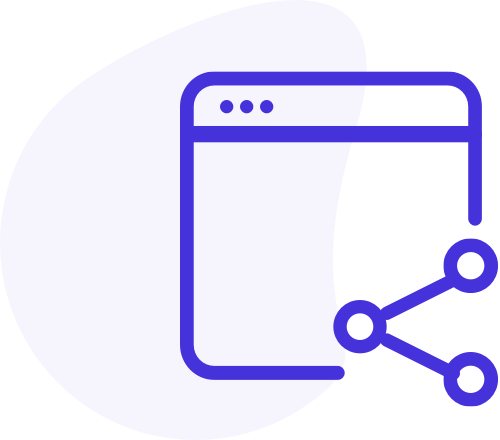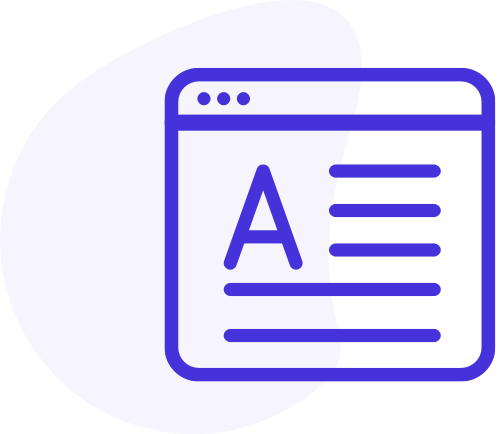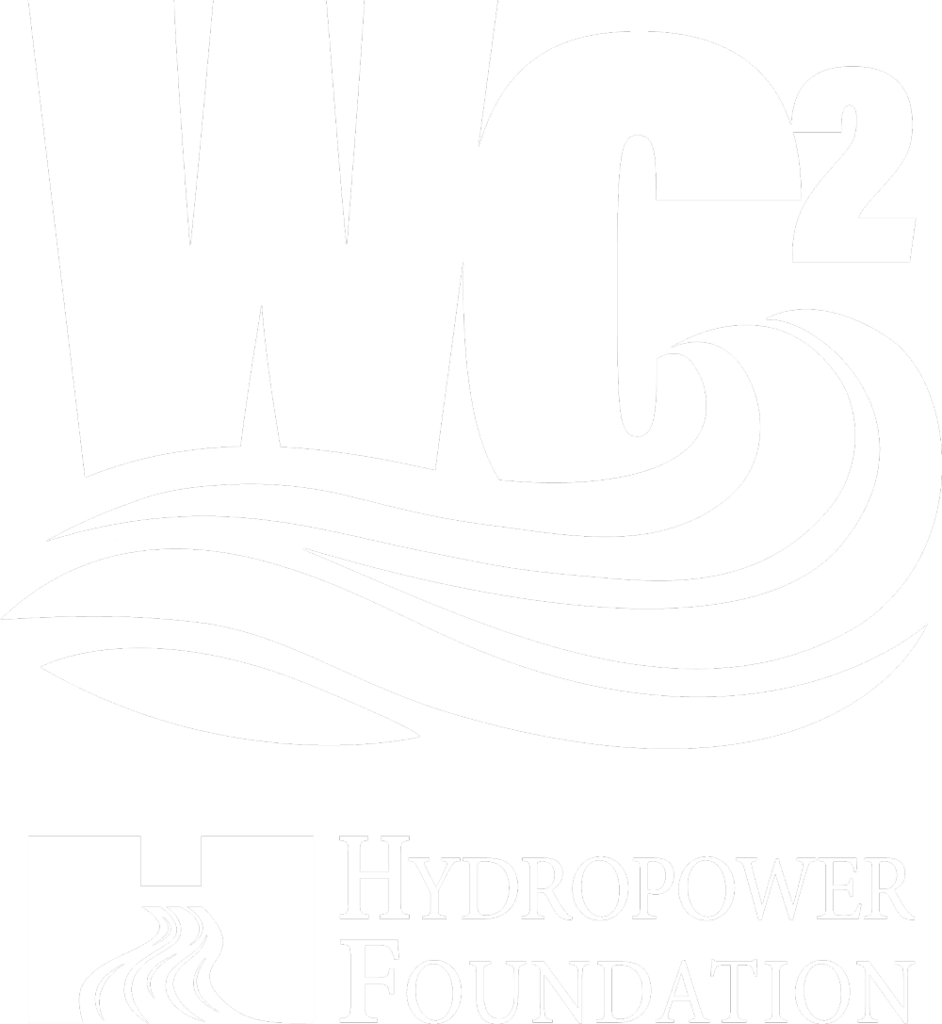Resources
The Hydropower Foundation serves as a cornerstone for connecting educators, students, human resources, and industry professionals.
The Foundation is a staunch supporter of providing data, knowledge and connections to deepen understanding of hydropower and the benefits of this clean and reliable energy source.

STEM Hydropower + STEM Marine Renewable Energy Portals
These information-sharing portals are designed to help spur innovation and growth in the hydropower and marine energy technologies industry and support workforce development.

Waterpower Club
The Waterpower Club - Waterpower Community Partnership (WC 2), helps students connect to opportunities in the waterpower sector.

Hydropower Career Map
With jobs in professional and business services, manufacturing, utilities, trade and transportation, construction, and more, the hydropower industry offers career opportunities for workers with transferable skills regardless of their hydropower experience. Produced by the Hydropower Foundation with with NREL.

Regulatory and Permitting Information Desktop Toolkit (RAPID)
An online space to search previous research on endangered species, regulatory compliance, and other developer resources to aid in the development of new hydro. Sponsored by US Department of Energy.

Center for Energy Workforce Development
CEWD was formed to help utilities work together to develop solutions to the coming workforce shortage in the utility industry. It is the first partnership between utilities, their associations, contractors and unions to focus on the need to build a skilled workforce pipeline that will meet future industry needs.

U.S. Energy & Employment Jobs Report (USEER)
The U.S. Energy and Employment Report (USEER) is a comprehensive summary of national and state-level employment, workforce, industry, occupation, unionization, demographic, and hiring information by energy technology groups.

reimagining the Hydropower Vision report
The Hydropower Foundation is working with the Pacific Northwest National Lab and the U.S. Department of Energy’s Waterpower Technologies Office on reimagining the Hydropower Vision report.

Data Science Programs
Guide for Students Looking for a Degree in Data Science

Master’s in Data Science—Your Guide to Data Science Graduate Programs
Offers prospective and current data science students information on different degree options, bootcamps, short course offerings, career choices post-graduation, and resources for staying current in the field once they begin to practice.

Oak Ridge National Labratory
The ORNL Environmental Data Science and Systems group supports advanced environmental and climate research and policy by developing and providing integrated data products, data delivery systems, and data analysis tools.

STEM Opportunities for Women and Minorities
A resource for identifying STEM opportunities through online learning for women and minorities and rankings for STEM careers.

National Energy Foundation
The National Energy Foundation is a unique 501 (c) 3 non-profit educational organization dedicated to the development, dissemination, and implementation of supplementary educational materials, programs, and courses.

Bureau of Reclamation
the Bureau of Reclamation is best known for the dams, powerplants, and canals it constructed in the 17 western states. These water projects led to homesteading and promoted the economic development of the West. Reclamation has constructed more than 600 dams and reservoirs including Hoover Dam on the Colorado River and Grand Coulee on the Columbia River.

Federal Energy Regulatory Commission
FERC's Mission: Assist consumers in obtaining reliable, safe, secure, and economically efficient energy services at a reasonable cost through appropriate regulatory and market means, and collaborative efforts.

The U.S. Army Corps of Engineers
The U.S. Army Corps of Engineers has approximately 37,000 dedicated Civilians and Soldiers delivering engineering services to customers in more than 130 countries worldwide.
Associations + Groups

American Public Power Association
A service organization for the nation's more than 2000 community owned, locally controlled, not for profit electric utilities.

Edison Electric Institute
EEI's mission focuses on advocating public policy; expanding market opportunities; and providing strategic business information.

EPRI
The Renewable Technology Options and Green Power Marketing program provides information on the status, performance, and cost of renewable generating technology.

Foundation for Water and Energy Education (FWEE)
Provides current and balanced information about hydropower resources in the Northwest

National Hydropower Association (NHA)
Dedicated to representing the interests of the hydropower industry.

United States Society of Large Dams
A professional organization dedicated to advancing the technology of dams.

Water Wheel Factory
Shares knowledge and history of making water wheels and small turbines.
CURRICULUM + educational materials

The Nature of Water Power
The Foundation for Water & Energy Education (FWEE) has a hands-on science curriculum appropriate for students in grades six through eight which is written to the latest science standards.

National Energy Education Development
National Energy Education Development (NEED) has a hydropower curriculum and educator resources which are available to K-12 educators. The Foundation was instrumental in funding these resources for students and educators.

US EPA Lesson Plans, Teacher Guides and Online Environmental Resources for Educators: Water
Find an array of environmental and science based lesson plans, activities and ideas below from EPA, other federal agencies and external organizations.

Power Wheel
The PowerWheel is a micro hydro generator – an amazing tool for teaching K-12 lessons about energy, hydropower and other renewable sources of energy. The PowerWheel unit hooks up to a classroom faucet or outside hose for easy use. Lessons and educational materials available on their website.

US Fish and Wildlife Service Education Programs
Range of programs and materials to assist with teaching and learning about endangered species.

USGS Water Science School
U.S. Geological Survey's (USGS) Water Science School offers information on many aspects of water, along with pictures, data, maps, and an interactive center where you can give opinions and test your water knowledge.

STEM Resources for Online Schools
The listings identify some great resources for younger students that wish to explore STEM ideas in after school programs, camps, and during college prep efforts. The second portion of this guide addresses resources for prospective and current college students.
frequently Asked Questions About Hydropower
Where can I find the name, location, size and owner of hydroelectric projects in the United States?
There is no complete source for this information. One reason is that varying types of public and private ownership make tracking this information difficult. Another reason is that no single government agency has regulatory responsibility that spans all hydroelectric projects.
Websites that are good sources for this type of information include (see links above):
• The Federal Energy Regulatory Commission (FERC)
• The Foundation for Water and Energy Education (FWEE) for projects in the Northwest
• The U.S. Bureau of Reclamation
• The U.S. Army Corps of Engineers
If you know the particular name or location of a project, you are also likely to find it by using an Internet search engine.
What is the average cost of building a hydroelectric project?
According to the International Energy Agency (IEA), in OECD countries, construction costs are usually less than $2 million per megawatt for large scale hydro (>300 MW) and $2-4 Million per megawatt for small and medium scale hydro.
The Energy Information Administration (EIA), in 2013 estimated that the capital cost for conventional hydroelectric is $2,936 per Kw of installed capacity. For pumped storage hydropower, the estimate is $5,288 per Kw.
This and similar types of information, however, should be used cautiously. Even for projects with the same capacity to generate electricity, the costs of building a hydroelectric project can vary dramatically. Examples of variables include engineering considerations unique to each site where a project may be located; the developers ability to transfer electricity generated to the power grid or end user location; and potential environmental mitigation needs.
What is the average cost of operating and maintaining a hydroelectric project?
According to the Energy Information Administration (EIA), based on 2012 data, the operation and maintenance of hydropower was 1.134 cents per kilowatt hour (kWh) of electricity. The Department of Energy site with this information can be found via our Hydro Links page.
These average costs are generally significantly lower than other major sources of electric generation because hydropower does not rely on a fuel source that costs money to import. In addition, the use of gravity to turn turbines is an important factor in allowing the mechanics of operating a project to be very efficient.
I’d like to build a small hydroelectric project. Where can I get information to do this?
Although hydropower is very economical to produce, to site and build a project requires detailed engineering. A project is also likely to require construction and environmental permits from local, state and/or federal agencies.
The International Small Hydro Atlas website has excellent summary information on the development, engineering and financing requirements of small hydroelectric projects. Natural Resources Canada also has the RETScreen International tool available online to estimate costs for small hydropower. http://www.retscreen.net
The Hydropower Foundation is presently developing and implementing an online technology catalog to identify projects, firms and consultants with project designs and development experience. This can be found at http://www.need.org/
The Colorado State Energy Office has published a small hydropower handbook which provides information on how to develop a small hydropower plant. While some of the information is geared to development in Colorado, there is also more generic information. http://www.ext.colostate.edu/energy/hydro-handbook.pdf.
Where can I get technical information on the building or refurbishment of a hydroelectric project?
There are a number of periodicals, newsletters and directories with current industry trends and up to date vendor information. Many of these resources can be found via our Hydro Links page. Web sites with this information commonly provide access to technical and research papers as well.
Our Research page also provides information on current and proposed research projects and research findings.
What is the historical development of hydropower in the United States?
The first hydroelectric projects in the United States were built in the 1880s. For an overview of how hydropower rapidly developed from that time to the present, two excellent resources are the U.S. Department of Energy and the U.S. Bureau of Reclamation web sites (see above for links to these sites).
Where can I find curriculum materials or science fair ideas for the classroom or home?
The Foundation for Water and Energy Education (FWEE) and the National Energy Education Development Project (NEED) have developed excellent curricula about hydropower for all levels of students. These resources can be accessed above.
What if I don’t find the information I’m looking for on this site?
If you cannot find the information you are looking for on this site, you can send a detailed request to the Foundation when you contact us. We will try to route your request to someone who can provide further assistance.


